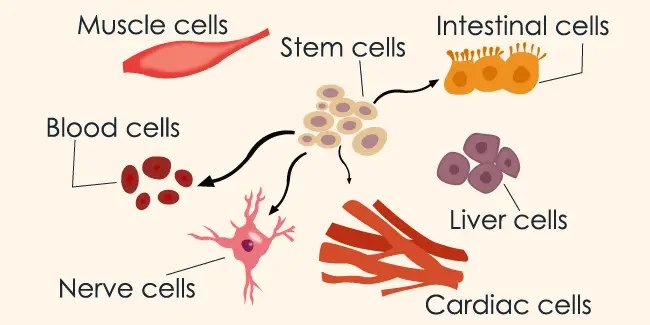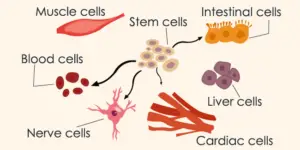
What does differentiation mean in biology
Differentiation is the process by which a cell specializes, acquiring the ability to perform certain functions, and failing to develop others. It occurs by differential activation of some genes and the repression of others. It changes the function of the cell, its size, shape, and metabolic activity.

The differentiation of cells occurs not only in embryonic development but also in the adult body. It is very important but also a very complex process. It occurs multiple times during the development of a multicellular organism, as it changes from a simple zygote to a complex of specialized tissues and organs.
Cellular differentiation in animals and plants
The process of cell differentiation and development in plants and animals does not occur identically. In animals, movements of cells and tissues must occur for organisms to obtain a three-dimensional conformation that characterizes them. Furthermore, cell diversity is greatly higher in animals.
In contrast, plants do not have a span of growth only in the early stages of the individual’s life; they can increase in size all over the life of the plant.
Process of differentiation
Process: During the differentiation process, the cells undergo a series of changes in their characteristics and a readjustment occurs in their mutual relationships.
The main changes are:
- Alterations in cellular content
- Differential growth in neighboring cells
- Changes in the structure of the cell walls
- Readjustments between cell
Factors and characteristics of differentiation
Factors:
- Mutation
- Lack of nutrient
- Drugs
- Temperature
- Toxic chemicals
- Viruses and bacteria
Characteristics:
Its characteristics are below
- Persistence
- Irreversibility
- Stability
- Universality
Now let see its example
Example:
The example of the differentiation is stem cells, while neurons are one of the most differentiated cells known. Cell differentiation takes place fundamentally thanks to controlled changes in the transcriptional program; that is, coordinated changes in gene expression.
Another example, a monocyte develops into a macrophage, a promo blast develops into a myoblast, which forms a muscle fiber, forming syncytium. Division, differentiation, and morphogenesis are the main processes that ensure the development of a single cell (zygote) of a multicellular organism containing cells of a wide variety of species.
What are Undifferentiated cells?
Undifferentiated cells are opposite of differentiation. It is a frequent form of basal cell life process invertebrates or amphibians, where a differentiated cell back to a previous state in the development process generally associated with regenerative.
Dedifferentiation occurs naturally in plants when secondary meristems originate.
For example, the phylogeny, meristem responsible for the formation of secondary protective tissues, originates from the dedifferentiation of epidermal and/or subepidermal cells.